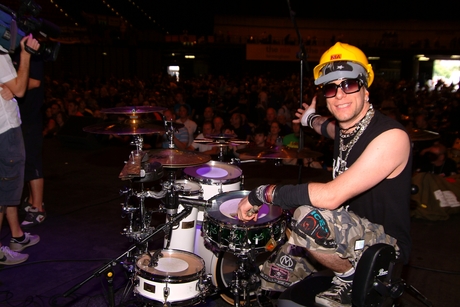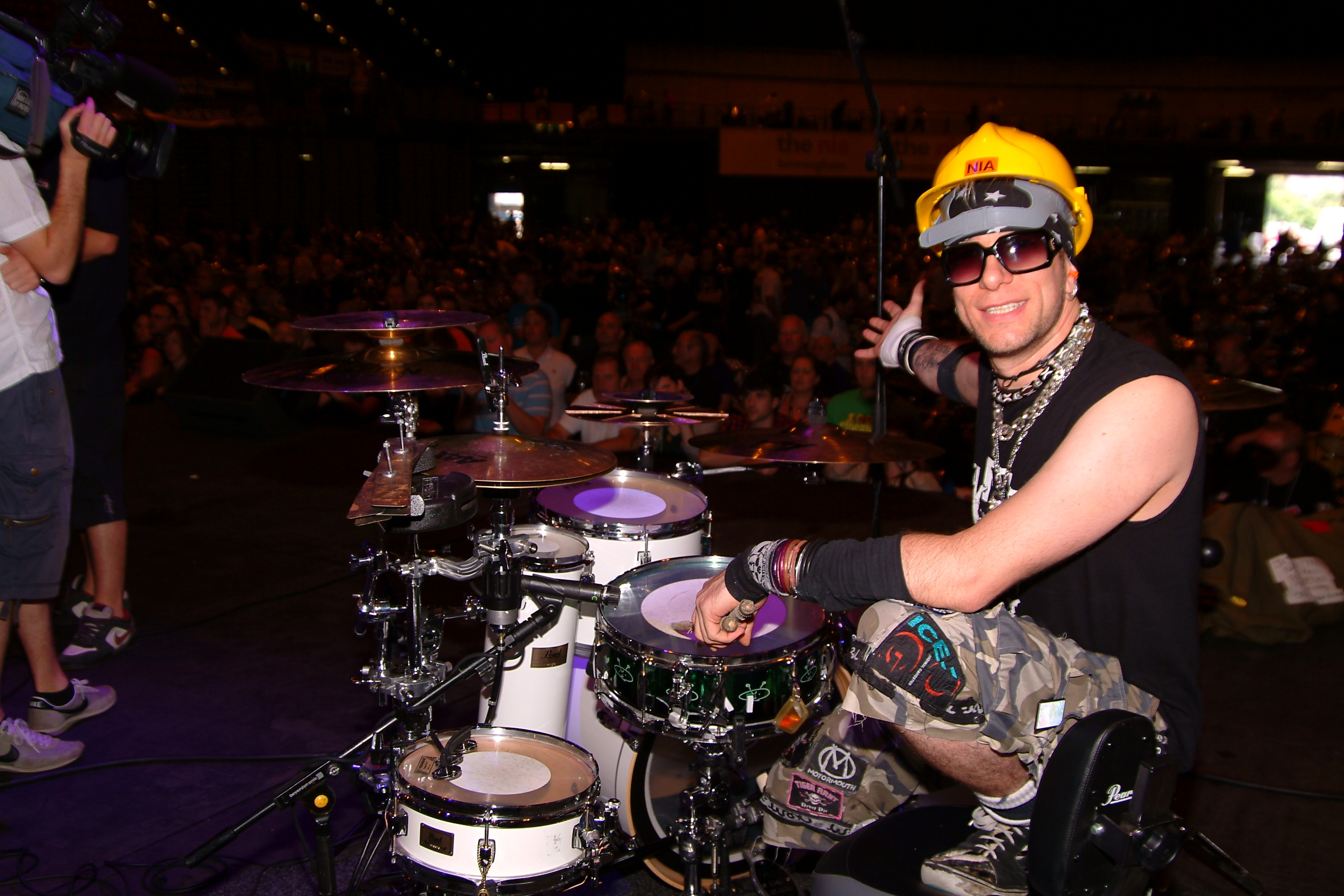Robin Guy's Guide to Sessions
Workaholic drummer gives his tips


Robin Guy is an incredibly busy er…guy. Track him down just about any day of the week and he'll be behind the kit in some way or another whether it be in the studio, in the rehearsal room or out on stage. So he seemed like a pretty good person to ask about how you get keep on landing those session gigs.
How important is personality in getting, and getting asked back to, sessions? And where does it rank alongside ability in terms of importance?
"I'd say it's very important when it comes to getting asked back! It may not be the first thing they are looking at to get you the job/ gig etc, but it definitely comes into play if they want to work with you again! Your playing will help you get the gig, your personality will help you keep it."
How is your time split between practice and playing and taking care of the business side - accounts, networking etc?
"Firstly, (for better or for worse) I've never done a days practice in my life, not even hours. I know I should, but it's not happened so far! My 'practice' if you will, is learning songs to rehearse/ record/ play, and then I go and do it.
"For example, last month I learnt and cribbed out 15 songs on a two-hour journey, arrived, set up kit and rehearsed them (including three new songs I'd never heard!), then recorded them all the next day, over-running by 15mins, but averaging 1 'take' every five mins for six hours. It's challenges like this that keep you fresh and on the edge!
"Lastly, unfortunately way too much time is spent emailing, researching, hustling, replying, texting, learning, phoning, cross-networking, liaising, meeting (in short communicating!) etc, but that's what's needed to keep moving! "
Get the MusicRadar Newsletter
Want all the hottest music and gear news, reviews, deals, features and more, direct to your inbox? Sign up here.
How important is an ability to quickly adapt to the style the artist wants?
"Very. I did this tour with Martin Barre (Jethro Tull guitarist) and on the way to the first rehearsal, I called the bass player and said "What's he like?", to which he replied "He hates volume". (I'm sure it was volume and not 'drummers'!). We had to rehearse at a level where we could talk and be heard, whilst playing. I did the entire tour with ONE set of hot rods. After the last show, Martin came up to me & said: "I'm very proud of you Robin" - needless to say, that made my day.
How much gear knowledge is needed? In terms of being able to know the right gear and sound for particular tracks/artists and being able to get that sound quickly in the studio.
"Tricky one this - as a lot can be done in the studio with different mics and their positioning, studio gear, mixing desk etc. I asked Dave McClain (Machine Head's drummer) whether his set up differed from studio to stage and he said no - as "that's my sound", whereas I read that Lars Ulrich has a studio set up - with thinner cymbals etc. I have used slightly thinner heads in the studio, but so much can change due to room size, mics used, engineer and of course, who's producing! My advice is to experiment, find, work on and define 'your' sound. "
What are the top three skills/attributes session players must have?
A car. *laughs*
The ability to not over-play - "LESS IS MORE" is the golden rule - certainly in the studio! Sometimes it's not what you put in, but what you choose to leave out that really helps a song to project.
A good sense of feel - what does the song actually require to make it really smoking? Brushes? Tight metronomic backbeat? Tribal toms? Lazy behind-the-beat swagger? All these can be crucial to making a session work. A good sense of timing - on many occasions I've been in the studio & the guitarist has an awful sense of timing, or the vocalist is messing it up with bad phrasing but rest assured, us drummers will get the blame! "
Do you have any advice for drummers looking to make a career from session playing?
" Err, long hours and lotsa travel (I recently did a show in Liverpool, got home at 5am, set alarm for 7am, and loaded up kit and off to Bournemouth for a drum clinic), and if you are working for people, you have to be good at working for people(!), so get out there and start networking! I played Top Of The Pops with Faith No More because I took a deep breath and walked straight in through a door marked "Session Connection - NO appointments unless booked".
" DO NOT: Think that once you've perfected paradiddles in your bedroom, Bon Jovi, U2 and Aerosmith will all start calling you. DO: Get out there and PLAY!"
For more session playing tips check out Rhythm's Session Month content.
Rich is a teacher, one time Rhythm staff writer and experienced freelance journalist who has interviewed countless revered musicians, engineers, producers and stars for the our world-leading music making portfolio, including such titles as Rhythm, Total Guitar, Guitarist, Guitar World, and MusicRadar. His victims include such luminaries as Ice T, Mark Guilani and Jamie Oliver (the drumming one).










